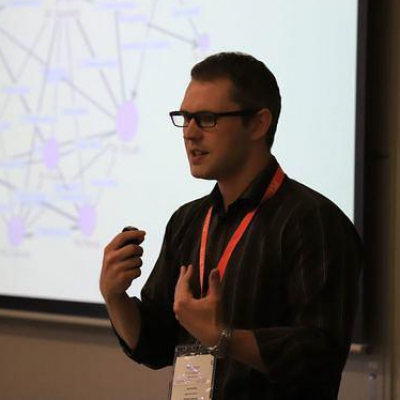Sessions / Long Presentation (45 minutes)
Cancelled Strategies for language teacher emotion regulation #3920
The emotions that language teachers feel and display have a profound impact on their professional practice and well-being. Fortunately, teachers can exert power over their emotions by employing emotion regulation strategies, actions that are taken to modify the strength, length, valence, and symptoms of emotions. In this workshop, I present three reflective activities that help teachers to understand their regulation habits and to increase their repertoire of regulation strategies. Since emotion regulation is informed by personal histories, the first activity will target the attendees’ emotion regulation beliefs. Here, participants will reflect on the emotions they wish to display in the classroom and the reasons underlying these wishes. In the second activity, the attendees will be presented with Gross’s (2014) process framework of emotion regulation and asked to consider how their regulation habits conform to this framework. In the third activity, the attendees will reflect on an emotional issue in their classroom and will be shown how to proactively build their strategy repertoire. Overall, the attendees will leave with a more comprehensive understanding of emotion regulation, a greater appreciation for their regulation habits, and numerous paths forward to help them manage future classroom stressors.
AI for university teachers’ wellness and reflection: Reducing workload and reflecting on teaching philosophy and practices using ChatGPT #3912
The advent of ChatGPT, an AI language model that can generate relatively compelling texts in different genres, caused a lot of concerns about the ethics of its use and consequences for education. While these concerns are not unfounded, just like any other technology, ChatGPT can be used for good. In particular, mastering ChatGPT can help teachers (1) reduce workload related to class planning, grading, and providing feedback to students, and (2) re-evaluate their teaching philosophy and practices in light of the accelerating use of generative AI. To take an active stance in the ongoing debate about what ChatGPT means for higher education, it is essential to understand how to leverage this tool.
The aim of this presentation is to promote university teachers’ professional development and well-being with the help of ChatGPT. I will demonstrate specific prompts, approaches, and strategies for using ChatGPT that teachers can incorporate in their workflow for designing and conducting their classes. I will also briefly explain the educational potential and future prospects of generative AI technology that extends beyond text generation. Finally, I will present a framework to help teachers rethink their educational practices in light of these technological developments.
Investigating mental health and well-being among tertiary language teachers in Japan #3926
Mental health is vital for our personal well-being. However, work-related stress significantly contributes to mental health challenges. This is particularly true for language teachers, who must contend with language anxiety, insecure working conditions, administrative demands, and the inherent stress of working in a foreign country (Cowie, 2011). While global research addresses psychological challenges and strategies for supporting language teacher well-being (Hiver & Dornyei, 2017), there is limited research on the mental health challenges faced by language teachers in Japanese tertiary education. This workshop aims to initiate a large-scale, longitudinal study to investigate the relationships among personality, stress, and wellbeing for tertiary language teachers in Japan. We will present two case studies illustrating workplace-induced stress and professional burnout. Audience members will be encouraged to share their own experiences of mental health issues relating to teaching in Japan. This workshop will foreground the importance of teachers’ mental health in determining the quality of our instruction, our learners’ success, and our own life satisfaction. Only when we better understand the factors that affect our mental health here in Japan, can we take informed action to proactively support our psychological well-being.
A task based approach to improve listening comprehension and active listening skills among university ESL students #3897
Teaching listening skills is one of the toughest parts of our jobs as ESL teachers, and this task becomes increasingly difficult when we teach Japanese students who are primarily from a non-English speaking environment. With barely any exposure to English at home or from their surroundings, Japanese students require hand holding, and thorough guidance to develop their active listening skills. Moreover, in the current ELT practice, we focus more on testing listening rather than teaching listening. Listening tends to be a transient and invisible process that cannot be observed directly. It is quite hard to generate “while-listening” activities that are engaging, and those that motivate students to interact with the audio. Most teachers find that teaching listening is challenging, and revert to the tried and tested approaches of creating pre-listening activities (perhaps pre-teaching vocabulary), playing the audio a couple of times while our students complete worksheets with gap-fill activities, true-false, multiple choice questions etc., and then some post-listening activities. In this presentation, I would like to present a couple of approaches to listening that involve group work, and active listening. One of the approaches is “Listen and make”, where the students work in groups while they are listening to create an object/drawing that represents the main idea. For the other activity, the students work in pairs to catch words and phrases from the listening task as they are listening.
Reflecting on Intuition in Language Teaching and Research #3923
During the course of a single lesson, language teachers make hundreds of on-the-spot decisions about how to proceed. If concurrently engaged in practitioner research and teaching, even more so. Intuition plays a vital role in the optimal distribution of mental resources, allowing experienced practitioners to make such decisions quickly, based on tacit knowledge and an accurate sense of what they feel is best in a given moment. Developing this sense of intuition takes years of practice, although our actions based on intuitions may not always be the most facilitative for the circumstances at hand. In this workshop, we will commence by looking briefly at the anatomy of intuition, drawing out its many different qualities. Based on past research from general education, as well as tentative findings from the presenters, the majority of the workshop will then prompt participants to consider and discuss their experiences of different forms of intuition. We anticipate that the session will be empowering for participants, encouraging them to recognize the ways in which metacognitive strategies such as reflecting on, or examining classroom data about, intuition can play a part in improving both our teaching/researching, as well as our mental health.
Qi Gong for Teachers: Teacher Well-Being Through Body-Mind Awareness #3906
Following an extended period of online learning and separation from a traditional teaching environment, many EFL college/university educators are needing to achieve a level of balance in daily life. Inspired by the work of Mercer & Gregersen (2020), this presentation will introduce a short version of a centuries old method of exercise known as Ba Duan Jin (Eight Pieces of Silk) Qi Gong. Combining gentle stretches, breathing, and meditation, this presentation will enable teachers to attain a sense of calm and create a positive atmosphere in class.
Creating a Space for Nihongo in English-only classrooms #3898
Skepticism remains among instructors, students, and other stakeholders in EFL education in Japan on the use of our students’ L1, i.e., Japanese in English language courses in the tertiary level. Several studies have pointed to the possibility of its strategic use through translanguaging, an approach where L1 and L2 are “utilised in the classroom for the purpose of developing the weaker target language” (Turnbull, 2018). Although perceptions persist that using L1 minimizes student opportunities to use their target language, it cannot be denied that its presence is unavoidable whether in skills based and content-based English classes and may even be deemed necessary. I believe it is crucial to recognize using Japanese if constructively employed in university EFL classes because of its potential as a tool in order to facilitate language learning and to enhance instruction. In my proposed session, I hope to exchange ideas and best practices with other university instructors on how they manage the use of students’ L1 for both learning and teaching contexts in their classes especially in intensive or advancedlevel English-language courses. I will also discuss based on my experience how its strategic and judicious use in activities and tasks have had positive impact and will share tangible benefits as seen in students’ performances and output.
*Note: This is a 45-minute presentation that will end at 16:10.






